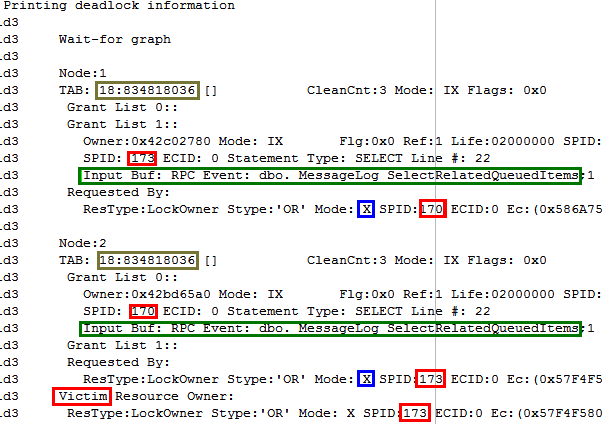[disclaimer: i'm a big fan of these three people, so much so that i'd take the time to criticise them publicly ;-) ]
In which I attempt to demonstrate that three of my heroes are indeed fallible human beings. And rather than do the nice decent thing and write to them privately, I insult them publicly for the GOAM (er, Good Of All Mankind).
Gunderloy -- idiot? Why?
In a stunning, yet well-telegraphed, event, Mike Gunderloy -- author of the Daily Grind -- has quietly drifted away from the warm embrace of the borg collective, er Microsoft, and decided to re-start his career in the Linux world. Go and check out his new blog, 'A Fresh Cup' for some news and background on this move.
The good news for microsoft consumers like myself is that Mike will continue to publish the Daily Grind for the foreseeable future.
But what's going on?
As long as i've been following Mike's writing he's been very critical of microsoft, cynical about Longhorn/Vista and very under-whelmed by office 2007. The cynicism was pretty powerful at times (hey that was always my favourite part!) and boiled a little hotter than usual lately when he attacked the office ribbon licensing scheme.
I think that in the last few years there are two sides to microsoft. We see these two sides continually.
(continues)
It's not "Raymond Chen versus MSDN" as spolsky would have you believe -- but more "Obasanjo versus Ballmer". There's the open, sharing, blogging, all-too-honest world of Dare Obasanjo -- the kind of world that Robert Scoble deserves a lot of credit for (even if you do see him as the blogging-equivalent of a hyperactive, ginger-haired tap-dancing 10-year-old). On the other hand there's the Steve Ballmer, business rationalist world, with it's licensing schemes, its cautiousness, bullying, monopolies, and general machiavellian attitude. Each side genuinely believes it's The Real Microsoft. And i think that for Mike G, the Robert Scoble picture of microsoft was always a flimsy illusion, just a facade that covered the true, cold-hearted, evil nature of the beast.
(at this point i want to insert a quote from an old issue of the daily grind where he said that he believes the openness of microsoft will come crashing down once someone stuffs up in an unapproved blog post and causes too much trouble).
On the surface, his decision to switch to microsoft has been prompted by the licensing scheme for the office ribbon ui. Clearly, it's mired in deeper difficulties. The complexity of moving to Vista gives a person time to stop and ask why -- why move to vista? if it's going to mean so much new learning, couldn't the same overall effort allow you to switch to a different OS?
And i think Mike, like all of us -- perhaps more so because of the even higher pressure he places on himself -- feels overwhelmed by the huge volume of learning that is required in microsoft technologies, just to keep up. He's mentioned the Red Queen's race before, and boy do these words strike home for anyone who tries to stay abreast of the latest microsoft technlogies:
"Well, in our country," said Alice, still panting a little, "you'd generally get to somewhere else � if you run very fast for a long time, as we've been doing."
"A slow sort of country!" said the Queen. "Now, here, you see, it takes all the running you can do, to keep in the same place. If you want to get somewhere else, you must run at least twice as fast as that!"
Does this make him an idiot?
No, never. The guy's a genius. I just thought a provocative title would help. I think that in a worst case scenario, he'll return to the collective in time, hopefully with his cynicism sharpened even more, with extra experience he's willing to share with us, about what can be done better and other lessons from other worlds.
In a best case scenario, he'll find an exciting new career in the open source world, and help more of us to make the move.
Somehow I can't help but hum the tune from the "Hitch Hiker's Guide to the Galaxy" movie... 'so long and thanks for all the fish!'
Spolsky -- idiot? Why?
Well that Joel Spolsky really is an idiot. ;-)
Okay, before I savage another one of my heroes, here's a little side story. Situations have recently meant that I had to try and use a bug tracking application other than Fog Bugz. Oh god, how much I miss my Foggies! Joel takes usability seriously, and for that we salute him.
But what's going on?
Joel wrote an article lately picking on the design of the shutdown options in Vista. His article called for a drastic simplification of the shutdown scheme. Hey I kind of agree, but I also saw big holes in his argument, which were conveniently described already at suniltana.com.
None of this makes him an idiot, though. What annoys me is that a recent article, Simplicity (arguing against simplicity, in favour of adding new features where needed) was clearly a contradiction to his earlier article. The contradiction/hypocrisy was so glaringly obvious that I can't help but think that Joel has done this deliberately to try and cause some controversy. I think he really wanted people to spot the hypocrisy and pick him up on it: it was so obvious and yet he didn't mention it.
If this was the plan, then it mis-fired, as complex plans do, and the readers tended not to pick him up for the hypocrisy at all (it's not like he was insulting Ruby On Rails) and instead just nodded and said 'okay, we believe you Joel.'.
His most recent article, about Elegance, nicely intermeshes these two apparently contradictory ideas (choices versus simplicity) but I still left feeling a little cheated. It seemed a little more contrived than I'd like.
Atwood -- idiot? Why?
Aw, maybe you ought to love Jeff Atwood (from Coding Horror.
Three great points about Jeff:
- When Hanselman has computer problems, he calls Jeff. And Jeff solves them. That's a pretty amazing talent right there.
- He's sent a lot of traffic to this blog! Thank you Jeff!
- He's in favour of supporting small ISV's! A great initiative. My early money is on Html-kit, and a few others are on the radar.
But what's going on?
The little thing that has annoyed me about Jeff is that sometimes he's slow to give credit. Recently he quoted almost all of an article by my compatriot Jo Cooney, and he hardly credited Joseph at all.
As a result there were 183 comments at Jeff's site, and only 5 at Jo's. I think this was partially a symptom of the poor credit-giving.
Another example was a very funny cartoon that Jeff used a few months ago, in his article Meet the Arch-Nemesis of Productivity: The Internet. Initially he gave no credit for this cartoon, and a lot of readers assumed he'd written it himself. Eventually he did give link the picture to the source and give a reference. His excuse was that he'd saved the picture some time ago and lost the source. Fair enough, but he's got some journalistic background and should've known better.
In fact this wouldn't normally annoy me even one little bit. But Jeff is the world expert at linking to his own content. He will never *ever* miss an opportunity to link to his own back catalog of work. So why shouldn't he be just as quick to link out to other people? (I've followed his lead lately, and started linking to my own back catalog more... it seems like the right thing to do.)
Jeff's only other 'crime' was his article 'Has Joel Spolsky Junmped the Shark' in which I thought the accompanying graphic was just outright cruel.
What's the lesson here?
I'm keen to see Jeff keep up the helpful content and the excellent writing. Just want to see him be a little quicker to link out to some of his sources. I think it's better to err on the side of over-linking rather than under-linking.
Well, that's enough iconoclasticism for now.
Have fun! No harm meant.



